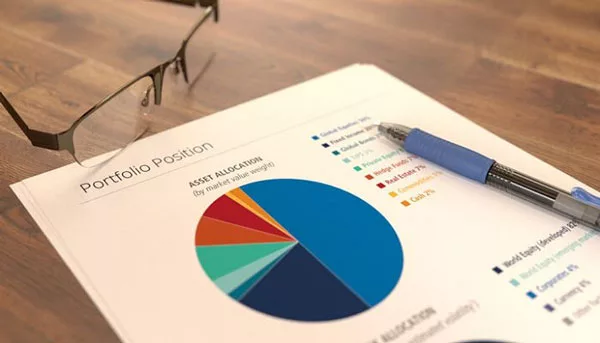How to Choose the Right Fund: A Comprehensive Guide for Retirees
Table of Contents
Introduction:
“How to choose the right fund?” is a question that has perplexed many, especially those nearing retirement.
With a plethora of options available, making the right choice can feel like finding a needle in a haystack. But fear not!
We’re here to guide you through the maze, with a sprinkle of humor and a dash of wisdom. Let’s embark on this financial journey together, shall we?
Understanding the Basics of Mutual Funds:
Mutual funds, for the uninitiated, might sound like a fancy dinner party topic. But in reality, they’re a lot simpler than they sound.
- What is a Mutual Fund? At its core, a mutual fund is a pool of funds collected from many investors to invest in securities like stocks, bonds, and other assets. Think of it as a potluck dinner, where everyone brings a dish (or investment) to the table.
- Types of Mutual Funds: There are various flavors available, each with its own set of characteristics. Equity funds focus on stocks, debt funds on bonds, and hybrid funds mix the two. Then there are sector-specific funds, index funds, and so on. It’s like a buffet, and understanding what each dish (or fund type) contains is crucial.
- The Magic of Diversification: Ever heard the saying, “Don’t put all your eggs in one basket”? That’s the essence of diversification. By spreading your investments across various assets, you reduce the risk of a significant loss.
Starting with Your Financial Goals:
Before diving into the world of mutual funds, it’s essential to understand your financial goals. Are you saving for a world cruise? Perhaps a cozy cottage by the sea?
- Short-Term vs. Long-Term: If you’re looking to buy that dream car in a couple of years, you’re looking at a short-term investment. But if retirement bliss is what you’re after, then long-term is the way to go.
- Risk Appetite: Some of us love the thrill of a roller-coaster, while others prefer a serene boat ride. Similarly, in the investment world, understanding whether you’re a thrill-seeker or a play-it-safe kind of investor is crucial.
How to Choose Mutual Funds for Beginners:
Alright, rookie investors, this section is for you!
- Research is Your Best Friend: In the age of the internet, ignorance is a choice. Dive deep into the world of mutual funds, read reviews, and understand past performances.
- Expense Ratios and Returns: While we all love a good discount, the cheapest fund isn’t always the best. It’s essential to understand the fees associated with each fund and weigh them against the returns.
- The Role of Fund Managers: Behind every successful fund is a hard-working fund manager. These unsung heroes analyze market conditions and make investment decisions on your behalf.
Choosing the Right Fund for Specific Accounts:
Different accounts have different needs. Let’s break it down.
- Roth IRA Investments: With tax-free growth and withdrawals, Roth IRAs are a retiree’s dream. Tailoring your fund choices to maximize returns is crucial.
- Navigating Through Fidelity: With a plethora of options available, making sense of Fidelity’s offerings can be daunting. But with a bit of research and understanding, you can make informed decisions.
Factors to Consider When Selecting a Fund:
Alright, time for some pro tips!
- Historical Performance: While past performance isn’t indicative of future results, it provides a glimpse into the fund’s stability and growth.
- Consistency is Key: A steady performer might be a better choice than a one-hit-wonder. Look for funds that have consistently performed well over the years.
- Size of the Fund: Does size matter? In the world of mutual funds, it might. Larger funds have a track record, but smaller funds might offer the potential for higher returns.
Common Mistakes to Avoid:
We’ve all made mistakes, but when it comes to your hard-earned money, it’s best to tread carefully.
- Chasing Past Returns: It’s tempting to invest in funds that have recently performed well. But remember, the rearview mirror isn’t always the best guide.
- Ignoring Fees: Those small percentages can make a significant difference over time. Always be aware of the fees associated with your chosen fund.
- Emotional Investing: The stock market is not the place for emotions. Always make informed decisions and avoid knee-jerk reactions.
Conclusion:
Choosing the right fund doesn’t have to be a Herculean task. With the right knowledge and a sprinkle of patience, you can make informed decisions that align with your retirement goals.
Remember, it’s not about timing the market, but time in the market. So, take a deep breath, do your research, and happy investing!
Frequently Asked Questions
What exactly is a mutual fund?
A mutual fund is an investment vehicle that pools together money from numerous investors to purchase a diversified portfolio of stocks, bonds, or other securities.
How do I start investing in mutual funds?
Begin by setting clear financial goals, understanding your risk tolerance, and doing thorough research. Many online platforms and financial institutions offer mutual funds, making it easy to start with even a small amount.
Are mutual funds safe for retirees?
While no investment is “safe” in the absolute sense, mutual funds offer diversification, which can reduce risk. It’s essential to choose funds that align with your risk tolerance and retirement goals.
How often should I review my mutual fund investments?
It’s a good practice to review your portfolio at least annually or whenever there are significant changes in your financial situation or goals.
What’s the difference between stocks and bonds in a mutual fund?
Stocks represent ownership in a company, while bonds are essentially loans made to corporations or governments. Mutual funds can invest in either or a combination of both.
Why is diversification important in mutual funds?
Diversification spreads your investment across various assets, reducing the risk of a significant loss if any single asset underperforms.
How do I choose the right fund for my Roth IRA?
Consider factors like your retirement goals, risk tolerance, and the fund’s past performance. Tax-efficient funds can be particularly beneficial for Roth IRAs.
Are there any fees associated with mutual funds?
Yes, mutual funds come with expense ratios, which cover the costs of managing the fund. Always be aware of these fees as they can impact your overall returns.
Can I lose money in a mutual fund?
Yes, all investments come with risks. The value of your mutual fund investment can go up or down, depending on market conditions.
What’s the difference between an equity fund and a debt fund?
Equity funds invest primarily in stocks, aiming for capital appreciation. Debt funds invest in bonds and other debt securities, focusing on income generation.
How do I know if a mutual fund is performing well?
Look at the fund’s historical performance, its consistency over the years, and compare it with benchmark indices and other similar funds.
Is it better to invest in larger, well-established funds?
While larger funds have a track record, smaller or newer funds might offer the potential for higher returns. It’s essential to assess each fund on its merits.
What are the common mistakes to avoid when choosing a mutual fund?
Avoid chasing past returns, ignoring fees, and making emotional investment decisions. Always base your choices on thorough research and your financial goals.
How does the stock-to-bond ratio impact my investment?
This ratio determines the level of risk and potential return in your investment. A higher stock ratio means more risk but potentially higher returns, while a higher bond ratio can offer more stability.
Can I withdraw my money from a mutual fund at any time?
Yes, you can redeem your mutual fund units at any time. However, some funds may charge a fee if you withdraw within a specific period.
Remember, investing always comes with risks, and it’s essential to make informed decisions. Consider consulting with a financial advisor to ensure your choices align with your retirement goals.



